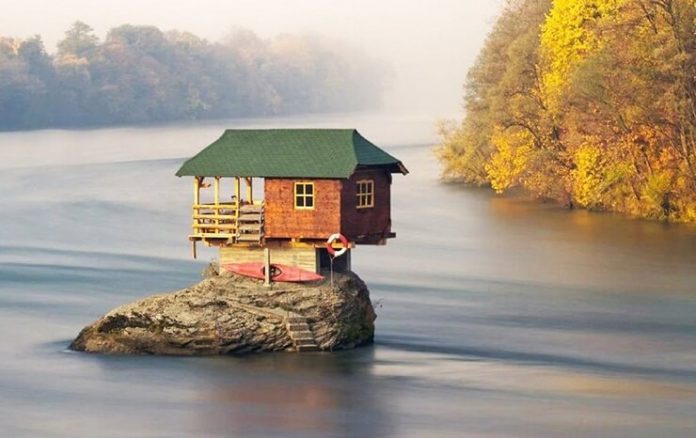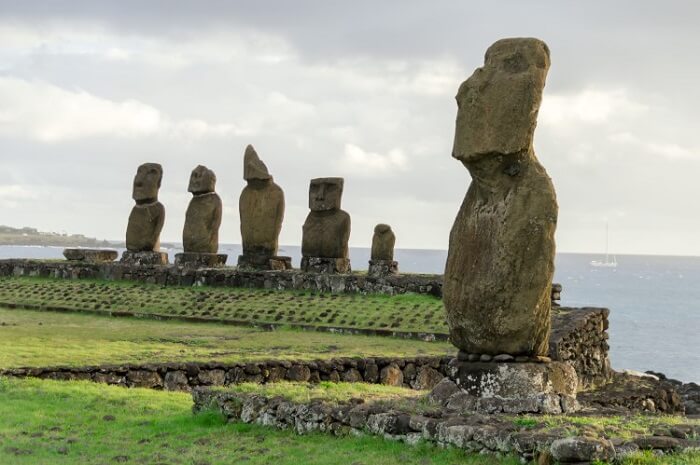In big cities like New York, London, or Paris, social distancing changes the normal life and vibe of these cities. And still, in far-off stretches of the globe, this sort of solitude is just the norm. These include some islands that are a week’s journey from the nearest landmass to a small hamlet in Arizona that still uses mules to deliver the mail. So we bring you the world’s most isolated places you should visit.
World’s Most Isolated Places
These world’s most isolated places are largely the homeplace of the respective indigenous people that are living a life totally different from ours.
Kalaupapa, Hawaii
Quite some decades ago, this community, surrounded by sea cliffs mounting 3,600 to 3,900-feet was used as a leper colony. Now a national park whose streams humpback whales, green sea turtles, and monk seals call home, the island is still much isolated and untouched.
Supai, Arizona
This is a home to the Havasupai tribe known as the “People of the Blue-Green Water” for the striking waterfalls and lakes of greenish-blue water here. Since A.D. 1300, this village in the Grand Canyon is only accessible by foot, helicopter, or transport animals, by which the U.S. Postal Service delivers mail.
Gásadalur, Faroe Islands
This small village has a lowest recorded population of just 18. Before 2004, it was an exploit just to attempt to enter this small town on the picturesque edge of a cliff, with one of the options being to hike over the adjacent 2,000-foot mountain. Now, a road with a hair-raising one-way tunnel—makes it approachable by car.
Tristan da Cunha, British Overseas Territory
This volcanic island is approachable only by boat and has just a single road that zig-zags throughout its unique arrangement. Lying about midway between Cape Town, South Africa, and Buenos Aires, Argentina, it takes roughly a week to reach the main island from South Africa.
Longyearbyen, Norway
This old coal-mining town in the severe Arctic weather lies amongst a backdrop of snow-covered mountains and fjords and is populated by only a few people. Because thousands of polar bears live in the area, local authorities ask tenants to carry a rifle for safety when out and about.
Motuo, Tibet
Despite it is located on the southern inclines of the Himalayas, this area holds a subtropical climate that provides for fruits like bananas and pineapples to grow. Until 2013, the only way to visit was by walking on foot.
Oymyakon, Russia
This town in the Siberian tundra is the coldest populated area on earth. With only 500 inhabitants, Oymyakon’s normal winter temperature is -58 degrees Fahrenheit, and have dropped to -90. The freezing temperatures and few hours of sunlight in winter make it difficult for crops to grow, so inhabitants survive on a diet of often meat and fish—sometimes even eaten frozen.
Home Island, Cocos (Keeling) Islands
Home to the Cocos Malaya people and very rare outsiders, this island of pictorial beaches and crystal-clear waters lies about 1,700 miles from Perth, with flights between them only twice a week. This is also one of the world’s most isolated places that is mostly untouched by foreign people.
Easter Island, Chile
Easter Island’s 900 marvelous statues don’t outnumber the island’s 3,300 inhabitants, but its economy relies largely on tourism as people from around the world make the 2,300-mile journey from Chile to wonder at them. A UNESCO World Heritage Site, the architecture, and the purpose of the statues still remain a mystery.
McMurdo Station, Antarctica
This research station was built on volcanic rock that is the firm area thought the furthest south and still approachable by ship. For six months in the winter, there is no daylight at all, while there is nothing but daylight for the rest of the year.















































